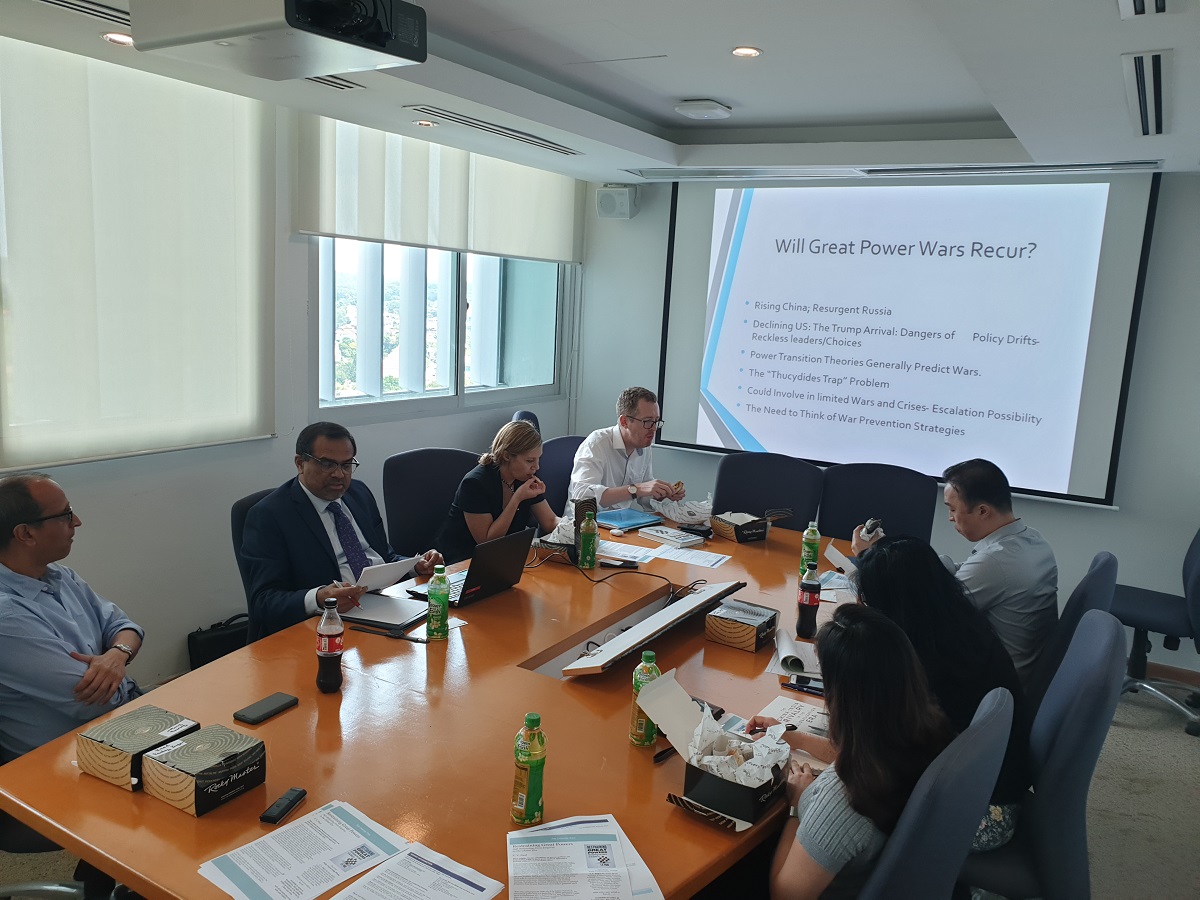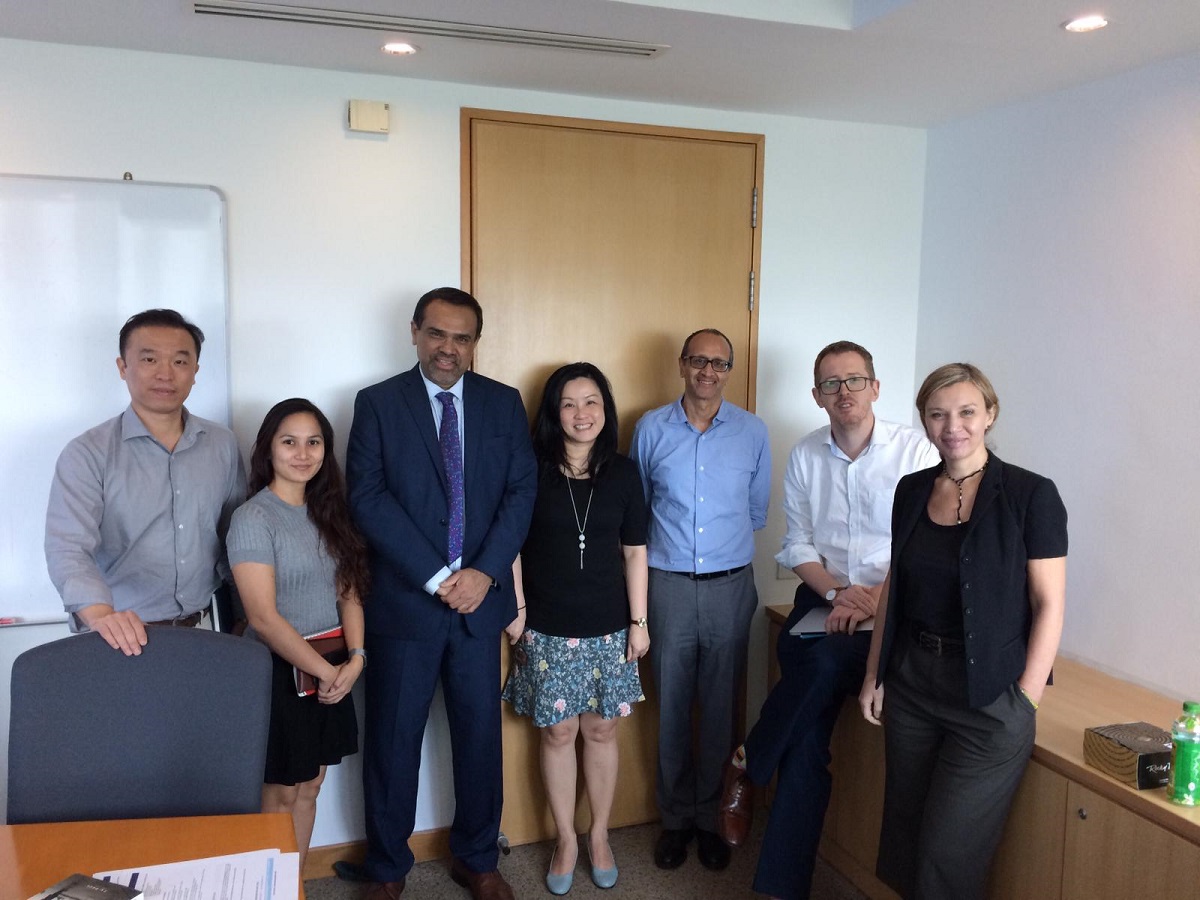
On March 13, 2019, T.V. Paul, James McGill Professor of International Relations at McGill University, presented at the 20th Politics and IR Brown Bag Session on his latest book, Restraining Great Powers: Soft Balancing from Empires to the Global Era. It was asserted that while great powers have been conventionally been seen as benign to the world by bringing stability and order; but in fact, they have been directly or indirectly causing many unrests and bloodsheds in the world, such as their sales of weapons, triggering of the two world wars, and many other proxy wars. Furthermore, Prof. Paul believes that it is possible that with the rise of China and the resurgence of Russia, together with the decline of the US, we are witnessing a period of power transition among the great powers. The power transition might result in the “Thucydides Trap” which might in turn cause the great powers to be involved in limited wars and escalation of crises. Therefore, there is now a need for the world to find strategies to prevent wars, just like hospitals and medical institutes are established to prevent diseases. This is especially important since traditional ways that deter wars are gradually becoming obsolete.
Since the end of the Cold War, there have been less instances of traditional hard balancing. This is caused by a variety of factors, such as economic globalization, the upholding of territorial integrity, and the advancement of military technologies that favor deterrence over offense. Therefore, soft balancing has become more and more viable in the world order today. Soft balancing is defined as “restraining the power of a state through international institutions, concerted diplomacy via limited, informal ententes, and economic sanctions, in order to make its aggressive actions less legitimate in the eyes of the world and hence its goals more difficult to obtain.” International institutions have been the key source of soft balancing since the end of the Cold War, despite the fact that sometimes great powers misuse these institutions, such as using institutions to legitimate one’s power and delegitimize the opponent’s behavior.
Prof. Paul pointed out that since 2010, many smaller states have been hedging between China and Russia on one side, with the US on the other side; while there have been a mixture of soft and hard balancing acts by the US and other smaller states against Chinese and Russian advancements. Soft balancing has also been directed against the US, and Obama could take office because he expressed the fact that the US was becoming more and more unpopular and was facing the soft balancing of other powers. Soft balancing requires a number of conditions to be successful, and some of the more important ones include the recognition of the use and strength of institutions by other powers, as well as how much are the great powers concerned about their own legitimacy, and whether these great powers perceive the institutions as legitimate. Soft Balancing adds richness and broadens the balance of power, and it is a great alternative for armed responses, since it is more flexible and other powers can still engage the threat (power) that is been balanced against.
International institutions, which are the key for soft balancing, are still regarded as important by great powers, and soft balancing is in fact beneficial to rising powers. Therefore, in the future, there will only be limited hard balancing since states are already constrained in the globalized era by soft balancing.
During the Q&A, it was noted that in cases of extreme rivalry, soft balancing and soft power may not work, but even during the Cold War, both the US and USSR were trying to win the support of the Third World through their soft power. Also, while soft balancing through institutions is to an extent similar to liberal institutionalism, but Prof. Paul argues that in liberal institutionalism, there is no element of constrain or soft balancing of powers or threats. A question was asked about the factors of economic interdependence and institutions and their roles in stopping hard balancing, and whether these two factors are still as effective as two decades ago. Prof. Paul replied that these two factors are still going to be effective in the meantime. While there have been de-globalization movements, but international trade is still growing. Still, in the future, there will be more cases of using a mixtures of soft and hard balancing. He also pointed out that the BRI is a very clever move in expanding Chinese influence without the use of force or military conflict at least for now, and it has become a form of institution by itself.
